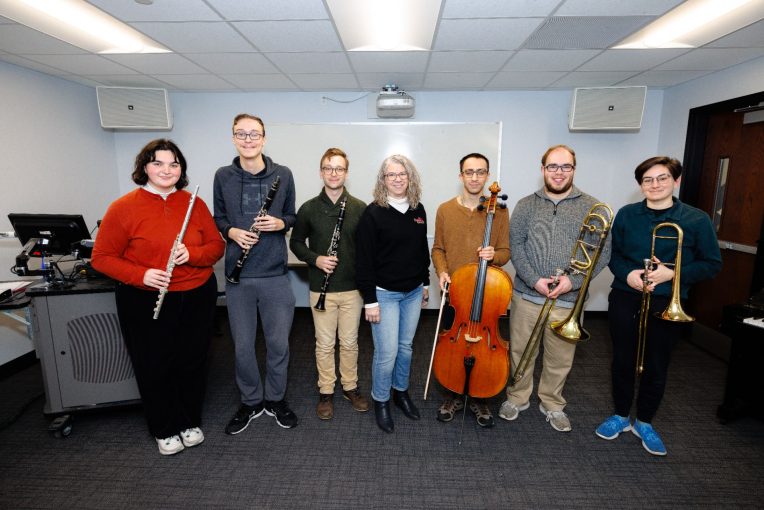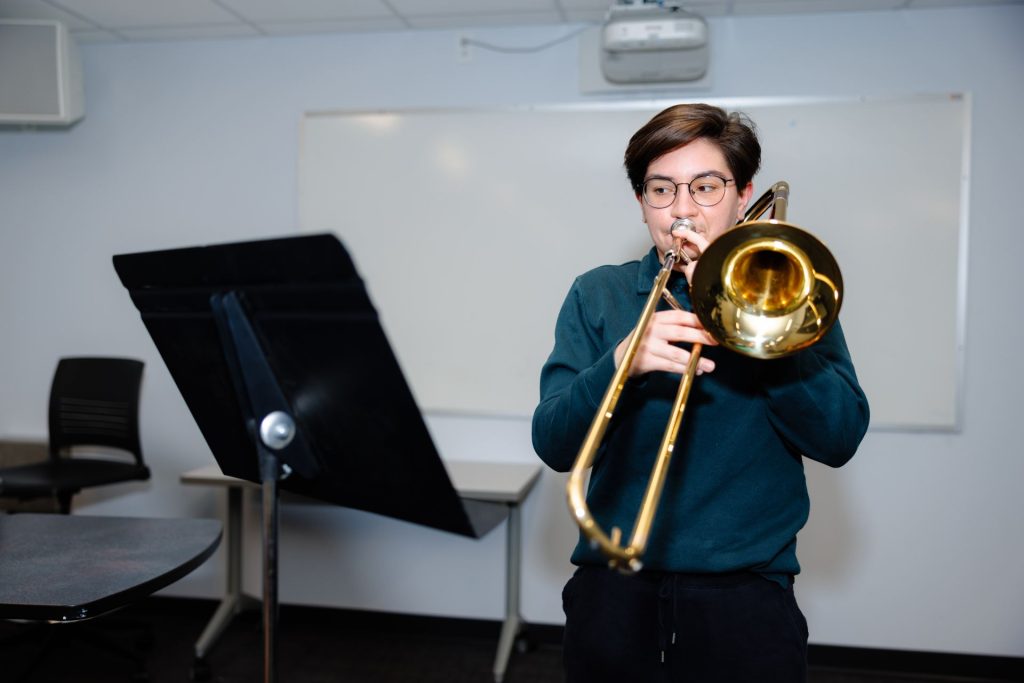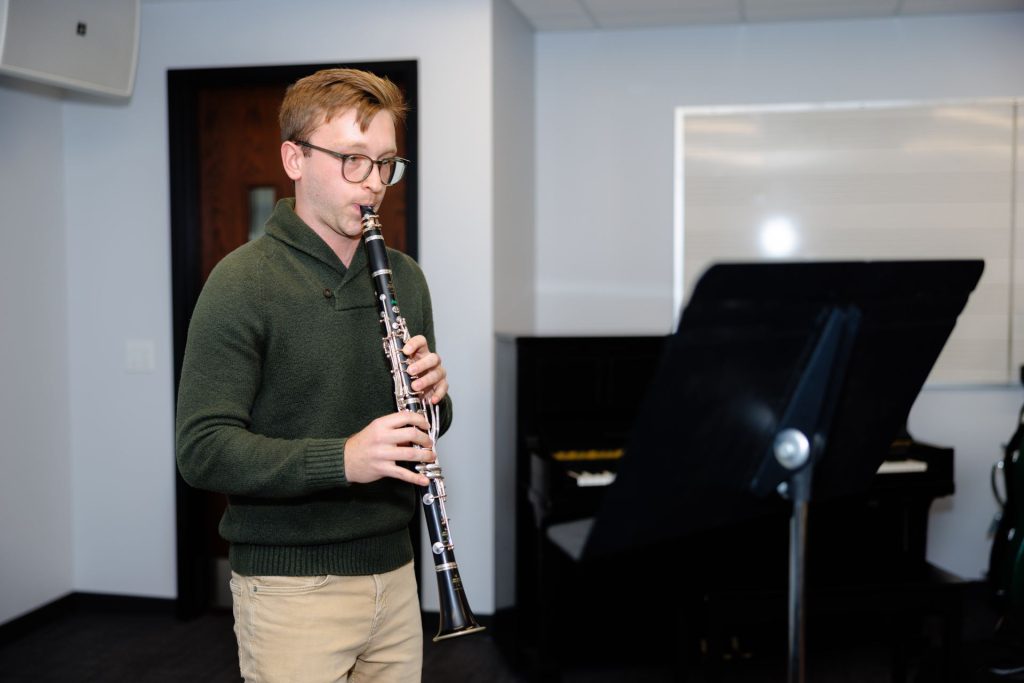Dr. Allison Alcorn, professor of musicology in the School of Music at Illinois State University, is giving her students a new twist on an old class.
“This is my take on a class that’s been around forever,” Alcorn said. “As a musicologist, I’m very much concerned about social, political, economic contexts in which music lives, so we recently added the context part to the title of the course.”
Alcorn teaches music history, social and aesthetic theory, and organology, which is the study of musical instruments. Her course, Musical Styles and Contexts of the Classical Era, is, in her words: “A deeper dive into the long 18th century.” The long 18th century, also known as the Age of Reason or as the Enlightenment, was an intellectual movement in Europe occurring in the 17th and 18th centuries.
Over the course of a semester, her students, who are seniors and graduate students, learn about lesser-known performers and composers.
“They all know about Mozart and Haydn, and they know about Beethoven,” Alcorn said. “But they don’t know about people like Sophia Dussek, or Jose Mauricio Nunes Garcia, or George Bridgetower, or Joseph Bologne. We focus a lot there. We look at contexts of what their style was, what they were doing, but also why they’ve been erased or marginalized.”
Senior Sophia Brattoli is a music education major minoring in history. She plays the trombone. She appreciates the opportunity to know more about the era and those who lived and made music in it.
“I like that this class lets us dive deep into a specific era,” Brattoli said. “Many of our other classes are large-scale overviews of music history, but this class lets us dig much deeper and do more intense research on this era.”
Christian Rucinski is a senior clarinet performance major. He agrees with Brattoli about the class and added that the size of the class is another plus for those wanting to learn more.
“I really enjoy the intimacy of being in a small class,” he said. “Since there are only six of us in the class, it allows us to discuss topics, voice our opinions, and ask questions.”
Brattoli said the class is helping her become more critical and well-rounded as a performer as she learns how to research and perform music in a historically informed manner.
“The skills we develop in this class can be easily transferred to other areas of performance and research in our education and teaching,” she said.
Alcorn, who is in her 11th year at Illinois State, requires that each student select a piece of music and prepare it as a performance research project. That means they will work with a collaborator or accompanist, who will need to know—from the student—how to interpret their role in a period-appropriate way. The student is also required to write program notes. The semester culminates with a public mini recital final examination.
The real test for Rucinski in that final exam will be his familiarity with the musical piece he’s chosen.
“I will be playing Mozart’s Clarinet Concerto in A Major, which I have performed before,” he said. “The challenging part about that is I have already built up muscle memory performing the piece one way, and having to ‘relearn’ it and break old habits to play it historically informed has been tougher than expected.”
Rucinski praised Alcorn’s choice of content, in particular for the attention given to the works of composers who have been overlooked because of gender or race.
“Dr. Alcorn intentionally has her students research underrepresented composers from the long 18th century,” he said. “By exploring these diverse composers and their works, we are able to highlight their contributions to classical music and encourage a more equitable representation in the performing arts today.”
Alcorn also included a unit on the role of gender in the era that she structured around Jane Austen’s Emma.
“We read the novel, and then we used that to look at how gender affected the use of music in society or the consumption of music and the production of music,” she said. “It was a lot of fun.”
In addition, Brattoli is a fan of the space that Alcorn has created that encourages her students to feel comfortable participating.
“It’s a very collaborative and open environment where everyone in the class actively contributes to the discussion and progression of the class,” Brattoli said. “This class involves lectures and research like a typical college class, but it also has a supportive and collaborative environment that I really love.”
In the end, Alcorn wants students to recognize the importance of the music that has come before them.
“The overriding goal with all my classes is to help my students discover the relevance of history to their present lives and work,” she said. “Musicians tend to silo knowledge, and sometimes it’s hard to recognize how an intimate knowledge of history impacts the way they perform a sonata from a particular era.
“I want them to experience applying what they’re learning to a performance.”
Alcorn’s class will have its final performance, a mini-recital that is free and open to the public, on December 14, at 9 a.m. in Julian Hall, room 52.



